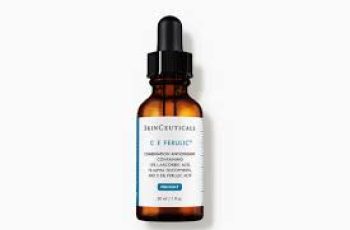
How to Get Naturally Glowing Skin?
We all strive for healthy, glowing skin, but achieving this goal is often a challenge in itself. When our skin is at its healthiest and its daily functions are functioning properly, it will glow, but a huge amount of skin damage often occurs throughout the day that prevents this from happening. Free radical damage occurs from UV radiation, pollution, and other environmental aggressors.
All of these factors accumulate over time, causing the face to appear dull and show signs of premature aging like fine lines and wrinkles.
But before you throw in the towel and give up on your dream of glowing skin, all is not lost, because today I will show you how to get glowing skin naturally using a variety of methods, helpful tips, and top ingredients.
How can I make my face glow naturally?
There are many different ways to give your face a natural glow without the use of makeup products. Here are some of the simplest lifestyle changes that can help your skin glow. Avoid smoking or secondhand smoke. When your skin is exposed to cigarette smoke, you are unknowingly picking up various chemicals and toxins. This can lead to skin oxidation, which is an imbalance between free radicals and antioxidants in the body. The number of harmful free radicals is much higher than the number of free radicals that protect your skin. Signs of premature aging, wrinkle formation, and decreased collagen production appear on the face. If you manage to stop, you can start to reverse the signs of damage, restore balance, and make your skin glow again. Wear sunscreen. I know I’m reiterating the importance of using sunscreen, but it really is so important! Protecting your skin from excessive UV radiation not only helps prevent the development of skin cancer, but it can also fight hyperpigmentation, or dark spots on the skin caused by excessive UV radiation, without having to use a sunscreen of SPF 30 or higher every day. This may be one of the simplest steps, but it has the biggest impact on the appearance of your skin. Drink enough water.
There are different opinions on how water affects the appearance of your skin, but the fact is that your cells need water to function properly, and numerous studies have shown a strong link between drinking enough water and healthy, radiant skin. Aim to drink 8 full glasses a day to ensure you stay hydrated, as this is not only beneficial for your complexion, but also for your brain function and overall health. Think about the time you take a shower
The steam and heat of a shower is great for flushing out toxins and opening up your pores. However, staying in a hot shower for too long can strip your skin of all those important oils, causing it to feel tight and uncomfortable.
Feeling uncomfortable, it can look very dry and dull. Try lowering your shower temperature. Not only is this good for your skin, it also improves blood circulation, boosts your immune system and makes your skin tighter.
Look younger. Remember not to shower with hot water, as this can strip the oils from your skin, causing redness, flaking and irritation.
So now you have a few lifestyle changes that can help you get the naturally glowing skin of your dreams! With just one of these changes, you will notice a very positive impact on your complexion. Give it a try!
Which ingredient gives your skin a glowing complexion?
Of course, I’d be lying if I said that a radiant complexion has nothing to do with a well-thought-out skincare routine. Using the right ingredients on your skin can do more good for it than you might initially think. Here are the best ingredients to incorporate into your daily skincare routine to give your skin a beautiful glow. Vitamin C
Vitamin C is known for its radiance-enhancing properties, and it should be top of your list of must-have ingredients. It’s packed with antioxidants that not only aid collagen production, but also boost skin cell turnover, which causes dead skin cells to slough off the surface of the skin. It reduces photodamage like dark spots and hyperpigmentation, and treats uneven skin tone. This alone gives the face an overall radiant glow. Alpha Hydroxy Acids (AHAs) These ingredients create an impressive skin renewal process by chemically exfoliating the skin and removing dead skin cells, which often accumulate on the surface, leading to a dull, dry, and sometimes even grey complexion. Retinol Granted, it’s one of the more complex ingredients to incorporate into your daily skincare routine (which is why I might recommend reading our dedicated blog post on the skincare benefits of retinol), but it not only reduces the appearance of fine lines and wrinkles, but it also renews skin cells and brightens your complexion. All in all, it’s a powerful ingredient if you want radiant skin. Hyaluronic Acid Applying a dose of hyaluronic acid to your skin every day can significantly improve the overall look and feel of your skin. It acts as a humectant, i.e. h. It may contain moisture from your face and other surrounding air
Use skincare to nourish and moisturize the skin, leaving your face looking radiant and healthy.
Of course, there are many different ingredients you can use that best suit your routine and skin type. If you have any concerns, it is best to consult a dermatologist or trained aesthetician for further advice
Take the advice.
How can I make my face glow in just a few minutes?
Here is a quick, easy procedure to brighten your face in just a few minutes: Cleanse your skin with a nourishing cleanser. The bonds that hold dead skin cells to your face are loosened, making it easier to remove them.
Use a chemical peel to remove the buildup of dead skin cells, bacteria, dirt, and debris, leaving your skin clean (but not dead).
Use a serum rich in vitamin C to enhance skin glow and prevent free radical damage.
Follow up with another serum containing hyaluronic acid to lock in moisture and give your skin a healthy, radiant look.
Don’t forget to follow up with an SPF 30 or higher for long-lasting skin benefits and a radiant complexion.
During the day, you can spritz your skin with sprays and other hydrating water mists.
Here are some tips on how to get your skin to glow naturally. While it may seem like a bit of hard work, you’ll be happy to hear that if you stick to your daily skin care routine, use the right ingredients for your skin type, and make some small changes to your skin, you can expect to see results in as little as 3 weeks by making lifestyle choices that will benefit you and your skin in the long run. Try these things and you’ll be glowing in no time!


